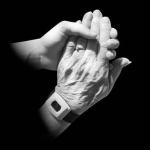One of the things which characterize modernity is the radical idealization of industrialization, of the machine, which has then lead to a similar idealization of technique. While it is true that many post-moderns are concerned about the dehumanization of humanity through such use of technique, their criticisms have yet to be heard by the average person. Because post-modernism tends to be reserved for intellectual elites, such as academics, it is difficult to know whether or not their ideas will effectively reach down to ordinary people or not. Lives have become mechanized; when we do something, we want simple, easy to correlate causalities, where a given action can easily lead to a desired effect. The simpler, more direct path we can make to relate the two, the better it seems. In its way, it is a search for power, for control. When we say we want what will give us the best result, what we mean by “best result” is quickest path to achieving our desires. We do not want to question whether or not those desires should be fulfilled.More importantly, with our interest in speed and efficiency, we often are not concerned about the consequences of our actions; if it is fast, it is good, without question. Whatever fallout which comes out of our activity is to be considered only after the fact, and is to be dealt with like every other problem (following our idealization of technique). While certainly much is accomplished following this approach, we must understand the effects this ideology is having on humanity: for over a century, we have been changing, becoming something less than what we could and should be, as Jacques Ellul points out:
The machine, so characteristic of the nineteenth century, made an abrupt entrance into a society which, from the political, institutional, and human points of view, was not made to receive it; and man has had to put up with it as best he can. Men now live in conditions that are less than human. Consider the concentration of our great cities, the slums, the lack of space, of air, of time, the gloomy streets and sallow lights that confuse night and day. Think of our dehumanized factories, our unsatisfied senses, our working women, our estrangement from nature. Life in such an environment has no meaning. [1]
It is not merely the conditions around us which have changed as a result of industrialization, but society itself has integrated the ideals of industrialization into itself, it has become mechanized. Society, as a whole, is treated like a machine, capable of being developed like a machine, and therefore, capable of being made more efficient, for its own good:
Technique integrates the machine into society. It constructs the kind of world the machine needs and introduces order where the incoherent banging of machinery heaped up ruins. It clarifies, arranges, and rationalizes; it does in the domain of the abstract what the machine did in the domain of labor. It is efficient and brings efficiency to everything.[2]
While there is something of value to be said about efficiency, we must remember the kind of livelihood such efficiency will not allow. There is little to no room for leisure beyond the time needed in order to be reenergized. There is no room for the positive pleasures of existence. Everything which gets in the way of efficiency must be denied. Love, for example, is only acceptable as a tool, making it something less than itself as a result; it is acceptable so long as it leads to the results we are looking for in the world.
Human society, in its efficiency, is acting and reacting at a much quicker pace than ever before. Speed has become so central to our lives, we have a difficulty slowing down and enjoying our presence in the world. If we do so, we feel the world moves on around us, and once we have stopped our rest, we have much to do in order to catch up with everyone else. In the end, we return to the rush for ever greater refinement of our activities, making sure they are as efficient as possible.
Time, and our experience of time, has been contaminated because of this. This means our perception of the world, of what is real, has been similarly contaminated. “No more delay, no more relief, volume is no longer the reality of things. This now concealed in the flatness of figures. Right here and now, life-size is no longer the yardstick of the real. The real is hidden in the reduction of images on the screen. Like a woman worried about putting on weight, being overweight, reality seems to apologize for having a relief, any kind of thickness.”[3] Such thickness in reality is a problem for us because it is what hinders our speed, our progress; the more we find a way to overcome it, the less of a problem it becomes, but with it, the more empty reality becomes. By trying to thin out the real, though it does not hinder us from our desired progress, it offers nothing positive to appreciate as well. Indeed, it is because it offers us nothing positive, nothing substantial anymore, we have no desire for it. We have turned our back on the real, and what we find is that everything around us becomes unreal. As a result, there is nothing to believe in:
This explains the sudden untimely and misplaced emergence, in the West today, of the very latest ATHEISM — an atheism trumpeting Reason and the Universal — that now confronts MONOTHEISM and, in particular, Catholic Christianity. A totalitarian form of fatal unbelief which we could describe as MONO-ATHEISM, this is an atheism for those who no longer believe in anything, in any part of this ALL of their immediate environment, in the face of the sudden acceleration of a surrogate reality that tries to suppress the primary importance of the phenomena involved in perception of the world.[4]
We have so lost touch with being in the world, because we have lost the world. When we try to put ourselves back into the world, in the realm of being outside of the realm of doing, we find ourselves … bored. We do not know what to do. It seems so unusual. We feel as if we must be doing something, achieving some end — without realizing that, in such pauses in life, what we need to do is just learn to appreciate being, to appreciate the world as it is, not as we try to make it into something else, to deconstruct it and make it nothing. We need to find a way to enjoy the real, positive pleasures of being, pleasures which are subtle and yet, once we know how to experience them, they become greater than anything technique can provide. But because we have been trained in technique, we find it difficult, and often painful, to counter it. Since, when we try to meditate on the world, to experience it as it is, positive results are rarely found so quickly, it is no wonder people give up. They feel nothing is happening. The simplification such meditation brings to their life seems boring. They have been led to expect instant results, and they are not getting them. It is, therefore, one of the first things one must learn to counter, this expectation for instantaneous results. One must not give up because it appears things are not going as one desires, especially if it seems as if everything is becoming boring. This means we need to experience and appreciate time differently. The more we try, the longer we get ourselves out of the quick pace of the modern world, the more we can appreciate simplicity and find ourselves enjoying that which we once thought boring, and enjoying it far more, in a realer sense, than before.
Is it any wonder that the activity of prayer has becomes so difficult for us? Although there are techniques of prayer, they can never be seen as technique in the modern sense; they might better predispose us to our encounter with God, but they do not make the encounter itself. And most people can not even apply such techniques — they exist for the sake of contemplative prayer; other forms of prayer, such as prayers of petition, might appear to be technique oriented, since they aim for a specific end, but because that end is not guaranteed (prayers are not, after all, magical incantations), they fail to meet the expectations we have for our activities in the modern world. And because prayer takes time out of our lives, that they slow us down from following others in the world of action, because they take us outside of the fast paced life we have come to accept, they become quite difficult for us. Ellul says it well: “we are attracted by action. There is little attraction in prayer. It is boring.”[5]
For many, there seems to be little to no reason for prayer. They wonder, why do we pray? Prayer does not guarantee that what we ask for shall be received (even if there are occasions in Scripture where it appears this is what should happen). Prayer is difficult. It takes up our time. It is slow. It is, as Ellul has said, boring. But Ellul is not saying that he does not think we should pray. Indeed, he thinks we should. So what reason does he give?
Very well, I was led to the conclusion that if we have every reason for not praying, we have just one reason only for prayer, namely, God’s command. There is no need to look for other explanations or foundations. Prayer today is no longer a spontaneous notion of man toward his creator, nor a ransomed soul toward his redeemer, nor of the person destined for death and for life toward the one who resurrects him. It can strictly be nothing other than obedience to a requirement which has credence as such, and here there is no need to go into profound analyses and exegesis. Either faith leads me to acknowledge that there is a command, and that at the center of that command is an instruction to pray, or else there is no faith.[6]
Now, we need to be careful with Ellul’s response. That it is God’s command is important. It is something found throughout Scripture, throughout revelation. No one questions the fact that God tells us to pray. No one has suggested that such commands are mere allegories. However, the fact that it is a command does not mean that we can attain no sense of understanding concerning why we are commanded to pray. The point is that as an issue of faith, we should pray, but then, as Christians who have a faith which seeks after understanding, we can and should look for such understanding — while doing that which God commands, and not neglecting that deed itself. Ellul, in fact, does tell us more about prayer; he says prayer is a means by which we have hope. “But if I engage in prayer, then hope is born. If I live hope, I think only of hope in prayer. The two feed on each other.”[7] Prayer is said out of faith in hope, and the more we pray, the more hope can develop. Why does it lead to hope? Because we find the world, and all that is contained within it, is not merely the realm of necessity, but also a place where God can bring liberating grace, freeing us from mere necessity — in all varieties of necessity. This means it does not place a demand on God, but it does mean we are open to God, and thereby, open to change which lies outside of the realm of mere efficient causality:
Prayer is the assurance of the possibility of God’s intervention, without which there is no hope. Prayer is the means given by God for the dialogue with him, that is to say, it is the very junction of the future with eternity, where we have seen that our hope is located. In its dialogue it embraces the past presented for pardon, the future defined by the cooperation between the praying person and God, and eternity, which prayer lays hold of through the sighs uttered by the Holy Spirit.[8]
By its very nature, freedom can never be entirely limited by necessity. Causality is determined by necessary relationships. Freedom must go beyond causality. This is done by God’s providential grace, which opens up possibilities which transcend necessity. They do not force us into action. The more we resist grace, the less liberty we will have, and the more determined our life will be. But on this side of hell, there will always be an element of God’s providential grace in everyone’s life, so no one will live life in pure necessity. But to attain true liberty, we must overcome the ego and the necessity it tries to impose upon us, and this is why the foundation of our spiritual journey must lie with the overcoming of the self, and our ingrained passions, through the obedience of faith and tend to God in prayer. This is the value of Ellul’s words. He shows us the foundation for why we pray. But the more we pray, and develop a life of prayer, the more that we give up on our ego’s ways, the more we see ourselves becoming free, and the hope Ellul alludes to develops until it becomes more than mere hope, but grateful love for God’s benefits to us. And finally we pray, not out of obedience, not out of desire for freedom, but in pure freedom we go to God in pure love; this is where prayer is leading us, to get to know God better, to love God more, until at last we are united to God in that love.[9]
Footnotes
[1] Jacques Ellul, The Technological Society. trans. John Wilkinson (New York: Alred A. Knopf, 1967), 4-5.
[2] ibid., 5.
[3] Paul Virilio, Open Sky. trans. Julie Rose (New York: Verso, 2008), 26.
[4] Paul Virilio, The University of Disaster. trans. Julie Rose (Cambridge: Polity Press, 2010), 48.
[5] Jacques Ellul, Hope in Time of Abandonment. trans. C. Edward Hopkin (New York: Seabury Press, 1977), 272.
[6] ibid., 274.
[7] ibid., 274.
[8] ibid., 272-3.
[9] Throughout this discussion, I will be talking about our love for God, and God’s love for us. In the Greek, there are certainly many different words for love, each providing a different way we experience love, such as the affection we feel for objects we “love” (“I love pizza!”), the affection we feel for our friends, the affection we feel for our romantic lover, and finally — the higher, greater form of love, often translated into English as “charity.” Our love for God, and God’s love for us, is capable of being all of these. It is not always, especially early on in our spiritual progress, a highly “emotional” feeling; it is often rather subtle, and an unconscious motivator for us. But the more we explore our relationship with God, the more it will be apparent in our conscious being, and the more it will affect and develop our relationship with God and others. And in this way, the more we discover this love in ourselves, the more we will find all four of these loves are united as one in us, each being a mode of our love for God and God’s love for us.
















